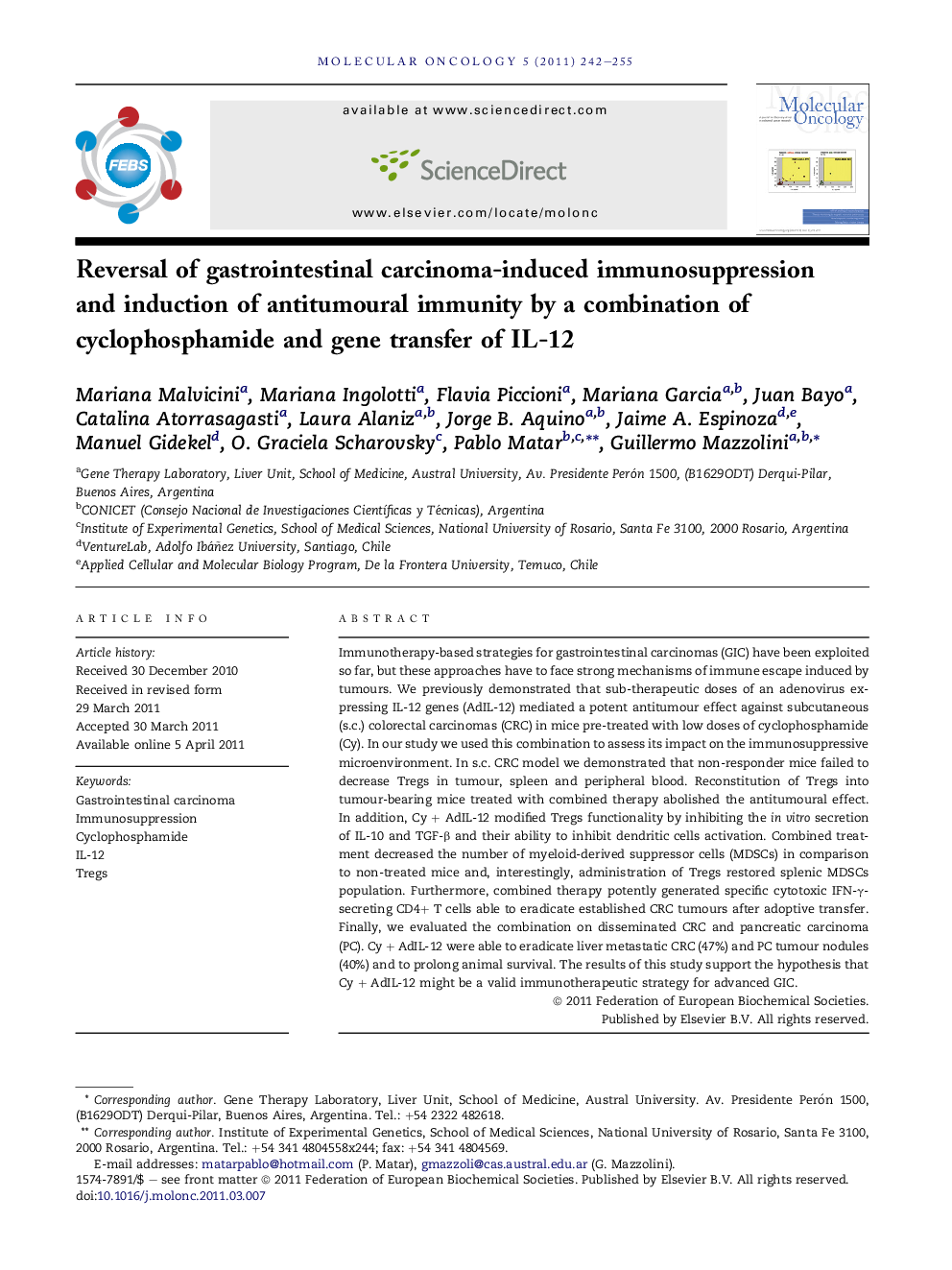| کد مقاله | کد نشریه | سال انتشار | مقاله انگلیسی | نسخه تمام متن |
|---|---|---|---|---|
| 2145820 | 1088830 | 2011 | 14 صفحه PDF | دانلود رایگان |

Immunotherapy-based strategies for gastrointestinal carcinomas (GIC) have been exploited so far, but these approaches have to face strong mechanisms of immune escape induced by tumours. We previously demonstrated that sub-therapeutic doses of an adenovirus expressing IL-12 genes (AdIL-12) mediated a potent antitumour effect against subcutaneous (s.c.) colorectal carcinomas (CRC) in mice pre-treated with low doses of cyclophosphamide (Cy). In our study we used this combination to assess its impact on the immunosuppressive microenvironment. In s.c. CRC model we demonstrated that non-responder mice failed to decrease Tregs in tumour, spleen and peripheral blood. Reconstitution of Tregs into tumour-bearing mice treated with combined therapy abolished the antitumoural effect. In addition, Cy + AdIL-12 modified Tregs functionality by inhibiting the in vitro secretion of IL-10 and TGF-β and their ability to inhibit dendritic cells activation. Combined treatment decreased the number of myeloid-derived suppressor cells (MDSCs) in comparison to non-treated mice and, interestingly, administration of Tregs restored splenic MDSCs population. Furthermore, combined therapy potently generated specific cytotoxic IFN-γ-secreting CD4+ T cells able to eradicate established CRC tumours after adoptive transfer. Finally, we evaluated the combination on disseminated CRC and pancreatic carcinoma (PC). Cy + AdIL-12 were able to eradicate liver metastatic CRC (47%) and PC tumour nodules (40%) and to prolong animal survival. The results of this study support the hypothesis that Cy + AdIL-12 might be a valid immunotherapeutic strategy for advanced GIC.
Journal: Molecular Oncology - Volume 5, Issue 3, June 2011, Pages 242–255